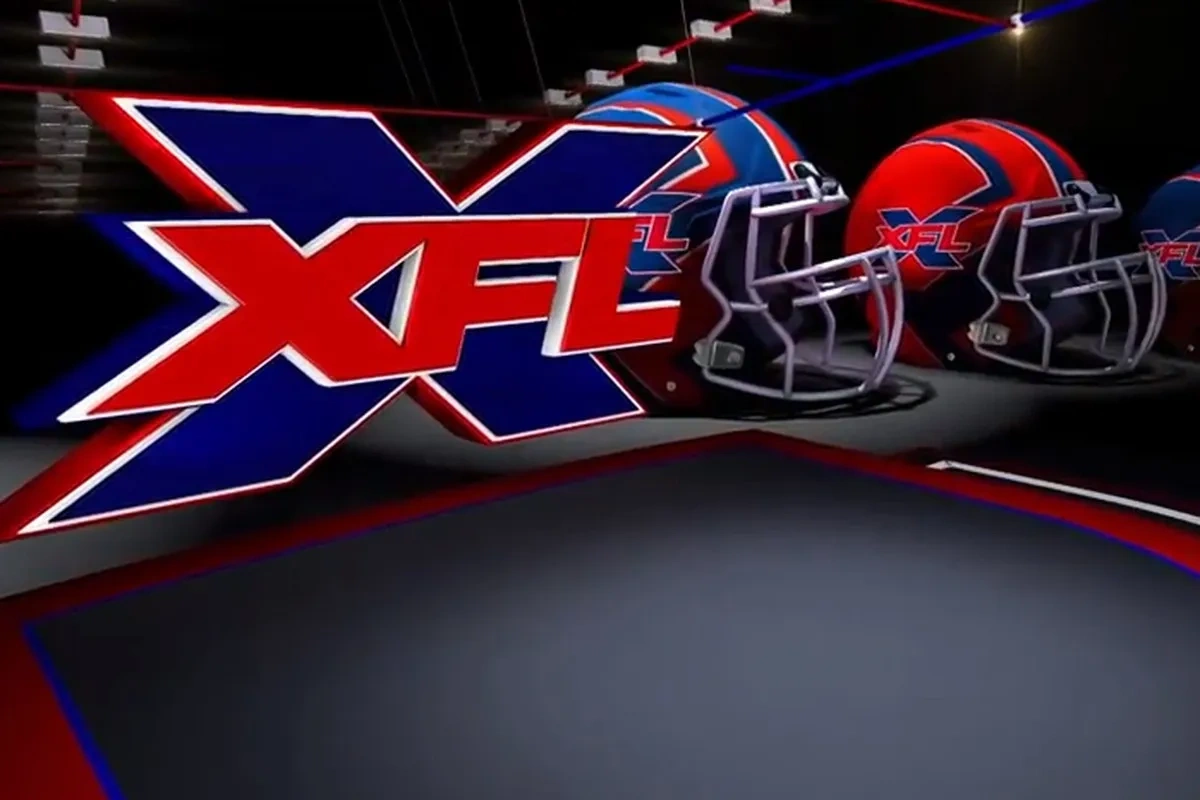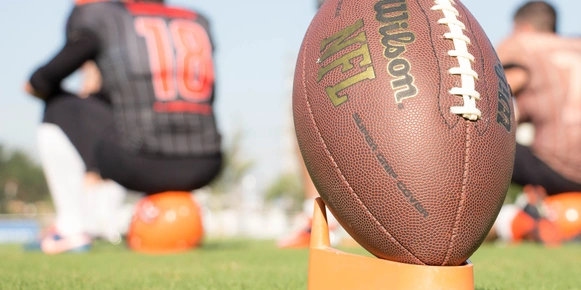Why Did the XFL Fail (Twice) and What Does the Future Hold?
- Sports
by Gametime

Nearly 20 years after the original XFL first folded, the new XFL displayed plenty of promise. The XFL was enjoying a successful rebirth, but it seems it was not meant to be. The league played five weeks before the coronavirus pandemic canceled the season, effectively ending its life span.
The NFL’s long term superiority once again prevailed as the most prominent pro football league. But, while the XFL is no more, it’s important to give it the credit it deserves. Let’s look back at why the XFL failed, twice, and what the future holds for this league.
Why Did the XFL Fail in 2001?
There were several reasons why the XFL failed in 2001. Ultimately, it came down to money and viewers. Television ratings fell steadily throughout the 2001 season and failed to attract a significant viewership for the Million Dollar Game, which was the XFL’s version of the Super Bowl. After that, NBC backed out of broadcasting the league’s second season. Even though league owner Vince McMahon initially said the league would continue for a second season despite the games not being broadcast, that plan was unfeasible and never came to fruition. In terms of money, both NBC and the WWE invested in the XFL but only made back about 30% of their investment, as the league didn’t create as much revenue as McMahon expected.
Another reason why the XFL failed in 2001 is that ratings tanked after a strong Week 1 viewership, mainly because of the product on the field. McMahon’s vision for the league was to combine aspects of pro wrestling with pro football. The first XFL game of the season kicked off with McMahon taking the microphone and trying to rile up the crowd, just like a wrestling match. Other wrestling stars were rolled out in subsequent weeks. However, football fans didn’t want that. The XFL tried to create characters and storylines as a way to manufacture drama, which adds to the entertainment factor in pro wrestling. But football fans just wanted to watch football. They didn’t need the spectacle of wrestling that McMahon was trying to recreate on the football field.
To football fans, the XFL came off as too gimmicky. Rather than having their actual names on the back of their jerseys, players were allowed to use their nicknames. For example, running back Rod Smart famously went by the name “He Hate Me.” There were unusual rules that tried to turn a football field into a wrestling ring. For instance, in place of a coin toss, the XFL instituted the scramble in which two players would go after a loose ball for the right for their team to start the game. Not only did the scramble feel too much like a training camp drill rather than an actual football play, but it also led to a rash of injured players before games even started.
The last reason why the XFL failed is a publicity stunt that went wrong. During an NFL playoff game in Oakland, the XFL flew a blimp, advertising the new league. However, the pilots had a mid-air mishap, abandoning the blimp before crashing into a nearby restaurant. It was seen as a bad omen for the league, and unfortunately, not the first. During the second week of the season, power was lost during a nationally televised game, which caused a drastic drop in viewers the following week.
In the end, why the XFL failed the first time around was because it was impossible for fans to take it seriously. There wasn’t a market for McMahon’s vision of a football league that tried to establish the showmanship of pro wrestling. Meanwhile, the unusual rule changes and publicity mishaps kept the media from taking it seriously as well. Soon enough, fans lost interest, and the XFL couldn’t make enough revenue to survive.
Why the XFL Might Have Failed Again
Things did look promising in the XFL’s second effort in early 2020. However, as the season was cut short, it's hard to tell if it would have succeeded or if it would have failed due to reasons other than the public health crisis.
For starters, history was working against the new XFL. It would have taken years of success for the league’s failure in 2001 not to hang over its head. On top of that, pro football leagues other than the NFL have a history of failure. In the last 50 years, the likes of the World Football League, United States Football League, United Football League, and Alliance of American Football all failed. Several iterations of the Arena Football League have also struggled to gain long-term traction despite experiencing some mild success and ultimately failed.
Obviously, all of these failed leagues believed they had a chance to succeed. However, all suffered from a similar shortcoming in the sense that they couldn’t match the level of play that the NFL offers. For what it’s worth, both the World Football League and the United States Football League were able to attract star players. But they couldn’t get enough stars, and they couldn’t replicate the caliber of play fans get from the NFL.
Needless to say, the XFL faced a similar challenge. To its credit, the league did a fine job recruiting top players for its inaugural season. In fact, some players will get a chance in the NFL as a result of their performance in the five weeks of the 2020 XFL season. However, there is only a small percentage of XFL players who are anywhere near good enough to crack an NFL roster. Therefore, there was an undeniable lack of star power in the XFL, which was particularly problematic at the quarterback position. High-quality quarterback play in a pass-happy league is a big part of the NFL’s appeal and was something the XFL found impossible to replicate.
The XFL also had to be wary of football fatigue among fans. Obviously, the XFL is never going to be able to compete with the NFL head-to-head, so starting the XFL season the week after the Super Bowl was the best chance the new league had of drawing an audience. However, it’s long been theorized that fans are ready for a break from football following the Super Bowl.
Between college football and the NFL, fans can watch football almost non-stop every weekend from the start of September until the Super Bowl, which is nearly half of the calendar year. While many diehard football fans will tune in to watch football any time of year, it would have been a struggle for the XFL to convince the entire NFL fan base to keep watching games every weekend in February and March.
Also, while the XFL didn’t have to compete head-to-head with the NFL, it did have other sporting events as competitors. With the 2020 XFL season being shut down after five weeks because of the coronavirus pandemic, it’s difficult to get a good reading on how the league measured up against other sports. For instance, college basketball takes center stage in March with dozens of conference tournaments leading up to Selection Sunday, which is followed by the NCAA Tournament. By the time the NCAA Tournament is over, the MLB and MLS seasons have begun while the NBA and NHL are heading down the stretch with teams fighting for playoff spots.
Even if the XFL drew enough viewers and generated enough revenue in February 2020 to make the league appear sustainable, it easily could have lost viewers by the middle of March. If the 2020 XFL season was played to completion, would the league’s final few weeks and playoffs come close to matching the number of viewers other sporting events routinely receive during that part of the calendar? It's hard to say. There’s every reason to believe that viewership would continue to decline late in the season, a fact that also contributed to the XFL’s demise in 2001. But, due to the coronavirus, this is something we'll never know.
2020 Differences and Looking to the Future
For those who watched the first five weeks of the 2020 XFL season, it’s clear that it was not the same league that failed in 2001. There were several noticeable differences that could have given the latest reincarnation a fighting chance of succeeding - had the pandemic not taken away its chance.
Naturally, it starts with the product on the field. The XFL would never have had elite quarterbacks, but for their 2020 season, they managed to recruit a few with NFL experience to improve the quality of the league as much as possible.
In addition to competent quarterback play, the XFL also instituted some minor rule changes to improve the quality of play. While the 2001 version of the XFL had gimmicky rule changes, the 2020 XFL used progressive rule changes. The league altered traditional kickoff rules to make it safer without sacrificing returns. The XFL also altered the play clock to increase the number of snaps and improve the pace of play. These changes helped create some positive buzz about the league and made it a more watchable product for fans. More importantly, the XFL altered rules that made sense for football rather than trying to turn football into wrestling, which was undoubtedly a mistake in 2001.
The XFL should also be commended for where it located its eight teams in 2020. The league placed teams in major markets like New York, Washington, and Los Angeles, not to mention Dallas and Houston in the football-loving state of Texas. In fact, seven of the eight teams were located in an NFL market, with the only exception being St. Louis, which just lost an NFL team a few years ago. Compared to the 2001 XFL, which had teams in cities like Birmingham, Memphis, and Orlando, this was a huge improvement.
On top of playing games in major markets, with most teams even playing in NFL stadiums, the XFL partnered with both Fox and ABC/ESPN when it returned in 2020. Within weeks of both networks broadcasting NFL playoff games, they were also broadcasting XFL games. This helped with the league’s exposure and marketing, ensuring fans knew that the XFL was coming as soon as the NFL season ended. More importantly, the XFL gaining two big-time TV partners allowed all four of the league’s weekly games to be televised, giving fans as many opportunities as possible to watch games and be drawn in by the new league.
However, all these changes proved to be wasted efforts as this unprecedented pandemic has brought the sporting world to a halt, and the XFL to an end.
To restart the league in 2020, McMahon sold a significant amount of his stock in WWE, which was supposed to ensure that the XFL wouldn’t experience any cash flow issues. But unfortunately for the XFL, this simply wasn’t enough when the pandemic hit.
In fact, the XFL may be the first pro sports league to fall victim to the harsh economic crisis caused by the coronavirus pandemic. As a newer enterprise, they were unable to protect themselves from the crisis, and as a result, had to lay off nearly all staff, suspend operations, and halt plans for future seasons.
As of this writing, the league has no plans to return for the 2021 season, and unfortunately, has filed for bankruptcy and put the XFL up for sale. It’s a sad time for the pro football world. But, even during this difficult time, we're remaining positive and hopeful that one day the XFL will make a successful comeback. Remember, third time's a charm!


